Cloud ERP Small Business: Taking SMEs to The Next Level
Small and medium enterprises (SMEs) face unique challenges in today’s competitive marketplace. You’re likely juggling multiple systems while trying to grow your business efficiently.
Cloud ERP systems are transforming how small businesses operate. Research shows these solutions deliver measurable benefits including reduced costs, improved agility, and enhanced productivity.
By 2025, cloud-based ERP software will be essential for SMEs looking to scale. Migrating to a cloud-based ERP system allows access to advanced technologies like AI and machine learning, which can significantly improve business processes and support growth. These systems integrate core business functions like accounting, inventory management, sales, and supply chain operations into one cohesive platform.
What is Cloud ERP?
Cloud ERP (Enterprise Resource Planning) is a type of ERP system that is hosted and managed remotely through the internet, rather than being installed and maintained on-premise. This modern approach to enterprise resource planning offers a comprehensive suite of business applications that enable organizations to manage their financial, operational, and customer-facing activities in a single, integrated platform.
For small and midsize businesses (SMBs), cloud ERP solutions are particularly attractive due to their scalability, flexibility, and security. These systems can grow with your business, adapting to increased demands without the need for significant upfront investments in IT infrastructure. Additionally, cloud ERP systems are designed to be accessible from anywhere with an internet connection, providing the flexibility needed in today’s dynamic business environment. Enhanced security measures ensure that your sensitive business data is protected, giving you peace of mind as you focus on growth and innovation.
Read more about ERP systems with us at:
Best ERP System for Accounting
Important Considerations When We Rate Cloud ERP Systems
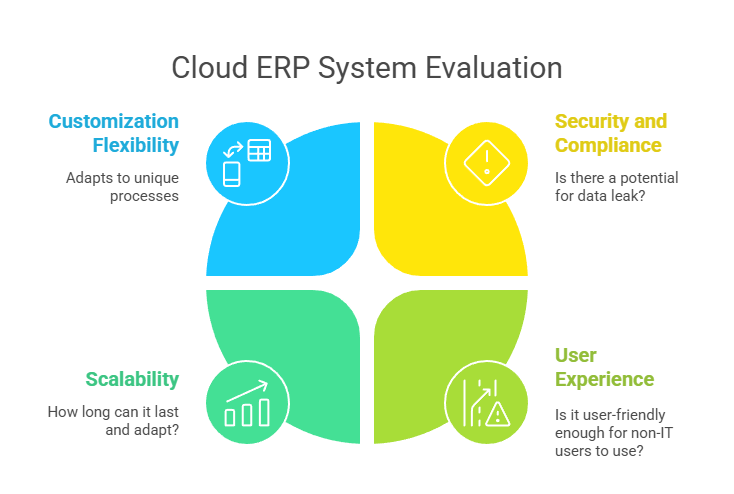
When evaluating cloud ERP systems for your small business, it’s crucial to assess how well they align with your specific business requirements. Not every solution will be the right fit for your operations.
Here are the main considerations we use to rate the systems:
- Customization capabilities
2. Integration
3. Scalability
4. Security and Compliance
5. User Experience
Customization capabilities matter significantly. The best cloud ERP systems offer flexibility to adapt to your unique processes without requiring excessive technical expertise. Look for platforms that allow you to configure workflows, fields, and reports to match your business needs. Additionally, consider the importance of key performance indicators (KPIs) in evaluating these systems, as customizable dashboards should provide a quick overview of these metrics.
Integration with your existing software ecosystem is non-negotiable. Your cloud ERP should connect seamlessly with your CRM, e-commerce platform, and other critical tools to prevent data silos.
Scalability in an enterprise resource planning system is essential for growing businesses. Your chosen system should accommodate increased users, transactions, and data volume without performance degradation or significant cost increases.
Security and compliance features must be robust. Cloud ERPs store sensitive business data, making proper encryption, access controls, and compliance with industry regulations vital considerations.
User experience can make or break adoption. Intuitive interfaces reduce training time and increase productivity. Test the system with actual users before committing to ensure it works well for your team.
Best Cloud ERP Systems Designed for Small Business in 2025
Small businesses face unique challenges when selecting cloud ERP systems. You need solutions that offer robust functionality without breaking the bank or requiring extensive IT resources. Finding the right fit can transform your operations and set you up for growth.
Without further ado, here are our picks:
1. SAP Business One
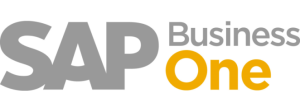
Pricing: Starts from RM4,000–RM6,000 per user (one-time) + annual maintenance; cloud options available monthly.
Pros: Scalable, localized for SST compliance, integrates all business functions.
Cons: Complex setup for SMEs without IT support.
Best For Which Industry: Manufacturing, distribution, wholesale, and trading businesses.
SAP Business One stands as a powerful ERP solution specifically designed for small to medium-sized businesses. It offers an integrated approach to managing various business functions in one centralized system.in
You’ll find that SAP Business One streamlines your daily operations through automation of key processes. This comprehensive platform covers everything from financial management to inventory control, sales, customer relationships, and purchasing.
Small businesses benefit from improved data accuracy when using this system. Real-time reporting tools help you make informed decisions based on accurate information rather than guesses or outdated reports.
What makes SAP Business One particularly valuable is its scalability. Your business can start with the core functionalities and add more features as you grow, ensuring the software evolves alongside your company.
The platform enhances customer service capabilities through better tracking of customer interactions and preferences. You can respond more effectively to customer needs with access to complete customer histories and transaction data.
Additionally, SAP Business One provides unified business insights by integrating various back-office operations and financial processes, enabling businesses to make informed decisions quickly.
SAP Business One offers cloud deployment options, making it accessible anywhere and reducing the need for extensive IT infrastructure. This robust enterprise resource planning basically gives your small business enterprise-level capabilities without the enterprise-level price tag or complexity.
2. SYSPRO

Pricing: Custom-quoted, typically starts around RM50,000 for SMEs.
Pros: Strong manufacturing and distribution features with local partner support.
Cons: High initial cost and complex implementation.
Best for Which Industry: Manufacturing, engineering, and distribution companies.
SYSPRO offers specialized cloud ERP solutions designed specifically for small manufacturing and distribution businesses. You’ll gain comprehensive visibility across all business activities, including financial operations, warehouse management, and inventory control throughout your supply chain. This end-to-end solution is accessible from any device with a web browser, providing flexibility for your growing business.
SYSPRO stands out for its industry-specific approach, particularly in manufacturing and distribution sectors. By implementing SYSPRO, you can streamline your sales processes, eliminate paper-based systems, and improve inventory accuracy—with some businesses reporting improvements from 92% to 99.5%. Cloud-based deployment reduces your need for in-house technical support and eliminates costly server hardware investments, making it an economical choice for small businesses.
While basic accounting software may suffice for very small operations, it often falls short as businesses grow, leading to inefficiencies in tracking cash flow and avoiding more complex ERP systems due to perceived implementation difficulties and costs. SYSPRO addresses these limitations by offering a scalable, comprehensive solution that can grow with your business.
Companies using SYSPRO report significant operational improvements, including increased shop floor reporting, better decision-making capabilities, and substantial ROI. The platform’s scalability ensures it can adapt as your business grows more complex, without requiring you to switch systems. SYSPRO’s focus on customer success is evident through their ongoing support and innovation services that help small businesses maximize their technology investment.
3. SAGE Intacct
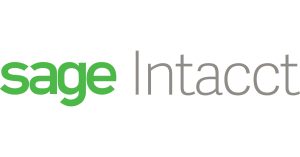
Pricing: Starts around RM3,000/month depending on modules and users.
Pros: Strong financial management, cloud-based, great scalability and reporting.
Cons: High initial cost, limited localization for Malaysian tax/compliance.
Best For Which Industry: Ideal for service-based industries like accounting, SaaS, and non-profits.
SAGE Intacct stands out as a premier cloud financial management solution endorsed by the AICPA, making it a trustworthy option for your small business. As one of the best ERP software, it combines robust accounting capabilities with AI-powered tools like Sage Copilot to help you uncover insights faster and drive higher performance. You’ll find the accelerated close process particularly valuable as it helps catch issues before they become problems.
The platform offers core financials, comprehensive reporting, and billing functionalities tailored specifically for small to medium-sized businesses. With SAGE Intacct, you can streamline routine operational tasks while cutting costs—a critical advantage when running a growing company. The system’s true cloud architecture ensures you can access your financial data anytime, anywhere, providing the flexibility modern businesses need.
4. Oddo ERP
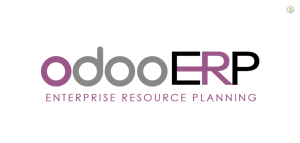
Pricing: Starts from RM120/month for basic apps, scalable with add-ons.
Pros: Highly customizable, open-source, all-in-one solution with local support available.
Cons: Steep learning curve, advanced features require paid modules and expert setup.
Odoo ERP stands out as a comprehensive solution for small businesses seeking cloud-based management tools. This open-source platform offers an impressive suite of applications covering essential business needs like CRM, accounting, inventory, point of sale, and project management. You’ll appreciate how Odoo automates tedious tasks while providing real-time information for better decision-making.
What makes Odoo particularly valuable for small businesses is its flexibility and fair pricing structure. You pay a single price per user with no hidden fees, usage-based pricing, or long-term contracts. The platform processes operations in under 90ms, creating a smooth user experience with reduced data entry time and a responsive interface.
Odoo comes in two editions to fit your specific needs: the completely free Community edition and the Enterprise version with additional apps and services. You maintain full ownership of your data with no vendor lock-in, as Odoo uses PostgreSQL and provides source code access. The platform’s community of over 100,000 developers constantly improves the system, resulting in 40,000+ available apps that can address virtually any business requirement you might have.
5. Cin7

Pricing: Starts around USD 325/month (~RM1,500), varies by features and users.
Pros: All-in-one inventory, POS, and B2B eCommerce integration with strong automation.
Cons: Higher cost, steep learning curve, and may be complex for small businesses.
Best For Which Industry: Ideal for retail, wholesale, and product-based eCommerce businesses.
Cin7 offers a cloud-based inventory management solution that gives you real-time visibility across all your products and components. You can track stock levels across multiple channels simultaneously, making it ideal for small businesses looking to scale their operations. This all-in-one platform eliminates the need for complex ERP systems while still providing robust functionality.
The platform excels in production management, transforming everything from material handling to complex manufacturing into streamlined processes. You can manage resources efficiently, track production progress, and bring new products to market faster with Cin7’s manufacturing tools. Its smart automation features handle order management, stock visibility, and selling logistics, freeing you from daily operational complexities.
Cin7 connects all your sales channels—online stores, physical retail locations, and B2B platforms—in one unified system. This integration ensures consistent inventory data across all selling points and provides valuable insights to optimize each channel’s performance. The system also simplifies financial management through seamless integrations with popular accounting software like Xero and QuickBooks Online, giving you accurate reporting and cost tracking capabilities without extra effort.
6. Infor
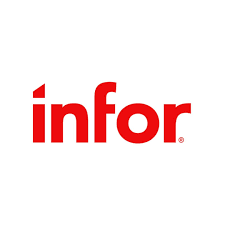
Pricing: Custom quote based on modules and company size.
Pros: Highly customizable with strong industry-specific solutions.
Cons: Steep learning curve and high implementation cost.
Best For Which Industry: Manufacturing, distribution, and automotive industries.
Infor stands out as a global leader in cloud-based ERP solutions specifically designed for different industries. You’ll find their software combines deep industry expertise with cutting-edge technology like generative AI, machine learning, and advanced analytics to help your small business innovate and stay competitive. Their relatively newer presence in the ERP market (compared to giants like SAP and Microsoft) hasn’t stopped them from building trust with over 60,000 organizations worldwide.
CloudSuite Business, Infor’s primary offering for small to medium businesses, delivers an integrated ERP solution that supports return on investment goals. You can benefit from the ease of future upgrades while staying current with technology through their proven cloud-based model. Their industry-specific approach means you’re not just getting generic software but solutions tailored to your particular business sector’s unique requirements and challenges.
7. IFS Cloud

Pricing: Custom-quoted, typically RM300,000+ for mid-large enterprises.
Pros: Flexible, industry-specific modules with strong asset management and project capabilities.
Cons: High implementation cost and complexity for SMEs.
Best For Which Industry: Manufacturing, engineering, construction, and energy sectors.
IFS Cloud stands out as a robust ERP solution that can adapt to small businesses despite its original focus on larger enterprises. You’ll find it particularly valuable if your small business operates in specialized sectors like aerospace, defense, or manufacturing where asset management is critical.
The platform combines Enterprise Resource Planning, Service Management, and Enterprise Asset Management in a single, unified system. This integration helps you reduce complexity while managing your critical assets, service delivery, and workforce productivity more effectively.
IFS Cloud offers industry-specific tailoring that can be customized to match your small business needs. The intuitive interface provides a seamless user experience that reduces the learning curve for your team.
One of the most impressive aspects is IFS.ai, which brings artificial intelligence capabilities across all functions. You can leverage these AI tools to enhance productivity, gain deeper insights, and make more informed business decisions.
The solution also includes composable applications that allow you to scale and innovate as your small business grows. You can connect and extend the system out of the box, making it adaptable to your changing requirements without extensive customization costs.
8. Dolibarr

Pricing: Free open-source with optional paid modules or hosted plans starting around RM50/month.
Pros: Customizable, user-friendly, supports multiple business functions.
Cons: Limited advanced features; community support may be slower.
Best For Which Industry: Ideal for SMEs in retail, trading, and service-based sectors.
Dolibarr stands out as a comprehensive open-source ERP and CRM solution perfect for small businesses in 2025. You can deploy it either on-premise or in the cloud, giving you flexibility to match your technical capabilities and budget for project management. This all-in-one web suite allows you to enable only the features your business needs, eliminating unnecessary complexity.
The system excels in its user-friendly interface, developed through constant feedback from its large community of users and developers. You’ll appreciate how Dolibarr eliminates double entries through seamless integration between modules right out of the box. Its modular structure covers essential business functions including human resources, product management, inventory, finance, billing, and marketing.
What makes Dolibarr particularly valuable for small businesses is its customization potential without requiring technical expertise. You can extend functionality using the low-code Module Builder assistant or choose from thousands of add-ons in the marketplace. The upgrade process is remarkably straightforward, allowing you to always benefit from the latest features without losing data regardless of which version you’re currently using.
9. NetSuite

Pricing: Starts from ~RM4,000/month depending on modules and users.
Pros: Cloud-based, scalable, real-time financials, strong integration.
Cons: High setup cost, complex implementation, requires training.
Best For Which Industry: Mid-to-large businesses in manufacturing, retail, and services.
NetSuite stands as a leading cloud ERP solution specifically designed for small businesses seeking comprehensive cloud erp software tools. You’ll find its AI-powered platform combines essential ERP/Financials with CRM and ecommerce capabilities in one integrated system. This all-in-one approach eliminates the need for multiple disconnected software solutions that often plague growing companies.
With NetSuite, you can efficiently automate core processes and manage your operations remotely without requiring physical presence at your office. The platform offers quick implementation with minimal upfront costs, making it particularly suitable if you’re working with limited resources and tight budgets. You’ll benefit from real-time financial visibility, streamlined inventory management, and enhanced customer relationship tools – all accessible from anywhere with internet connection.
10. Acumatica
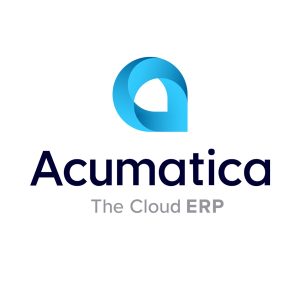
Pricing: Custom quote-based, starting around RM10,000/year depending on modules and users.
Pros: Cloud-based, scalable, user-friendly with strong mobile access and flexible licensing.
Cons: High initial setup cost, limited local support, requires customization for niche industries.
Best For Which Industry: Ideal for manufacturing, distribution, construction, and service-based SMEs seeking cloud ERP.
Acumatica stands out as a born-in-the-cloud ERP system specifically designed for small and mid-sized businesses. You’ll appreciate its intuitive interface that allows your team to access critical business data from any device, improving collaboration across departments. The platform boasts one of the highest customer satisfaction ratings in the industry, which speaks volumes about its reliability as a cloud ERP software.
The system offers flexibility that growing businesses need, with consumption-based pricing that scales with your company. You won’t face penalties for adding users as your business expands – a common pain point with other ERP solutions. Acumatica’s comprehensive modules cover financial management, distribution, manufacturing, retail, construction, and professional services, making it adaptable to various industry needs.
What makes Acumatica particularly valuable for small businesses is its seamless integration capabilities with existing tools and systems. You can maintain your current tech investments while gaining the benefits of a unified cloud platform. The low-code/no-code environment allows you to personalize your instance without extensive technical knowledge, putting control in your hands rather than requiring constant IT support.
AI-powered features and real-time business insights help you make data-driven decisions faster. Your team can work more efficiently with modern cross-module workflows that eliminate data silos and redundant processes. As a small business owner, you’ll appreciate how Acumatica provides enterprise-level functionality without the enterprise-level complexity or price tag.
11. Microsoft Dynamics 365 (Business Central)
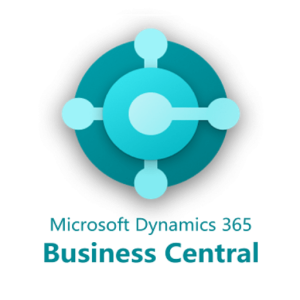
Pricing: Starts from ~RM300/user/month depending on license type.
Pros: Seamless Microsoft 365 integration, cloud-based, customizable for SMEs.
Cons: Can be complex to implement and costly with add-ons or customizations.
Best For Which Industry: Ideal for retail, distribution, manufacturing, and service-based SMEs.
Microsoft Dynamics 365 Business Central stands out as a comprehensive cloud ERP solution specifically designed for small and medium-sized businesses. You’ll find it integrates seamlessly with Microsoft 365 applications like Outlook, Excel, and Teams, creating a unified ecosystem for your daily operations. This integration enables real-time data sharing across your organization, eliminating silos that typically slow down decision-making processes.
The platform excels in connecting your finance, sales, service, and operations in a single easy-to-use solution. You can reduce costs by eliminating on-premises infrastructure while gaining AI capabilities through Microsoft Copilot to automate routine tasks. Business Central offers scalability that grows with your company—starting with basic functionalities and expanding as your needs evolve.
What makes Business Central particularly valuable is its extensive partner network providing industry-specific expertise and implementation support. You can start with a free 30-day trial to test its capabilities before committing to the platform. The solution’s cloud architecture ensures your team can access critical business information from anywhere, supporting remote work and business continuity.
12. Tally Prime
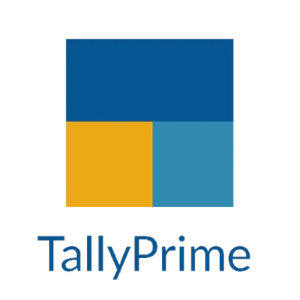
Pricing: Starts from RM900+ one-time license fee, with optional annual renewal.
Pros: User-friendly, GST/SST compliant, strong inventory & accounting features.
Cons: Limited cloud access, fewer integrations with Malaysian banks.
Best For Which Industry: Ideal for SMEs in trading, manufacturing, and distribution.
TallyPrime stands as one of the oldest and most trusted business management solutions for small businesses since 1986. You can manage essential business operations including accounting, inventory, payroll, and compliance all in one integrated platform. The software is designed to be user-friendly, making it accessible even for those without IT or accounting backgrounds.
What sets TallyPrime apart is its flexibility and scalability for growing businesses. You can start with basic features and add capabilities like multiple go-downs, multi-currency support, and cost centers as your business expands. The platform offers real-time business reports that you can access from any device with a web browser, giving you insights whenever and wherever needed.
The software excels at cash flow management through efficient bills receivable and payable tracking. You’ll benefit from TallyPrime’s inventory management system that helps track, forecast, and optimize stock levels with accurate reports available at the click of a button. The intuitive workflow eliminates the need to remember shortcut keys, allowing you to work faster and accomplish more in less time.
TallyPrime offers flexible pricing with single-user and multi-user options to accommodate different business needs. The multi-user license supports unlimited users on the same LAN environment, handling large transaction volumes without compromise. Your data remains safe even during network disruptions, power failures, or system reboots—a critical feature for business continuity.
13. SAP S/4HANA
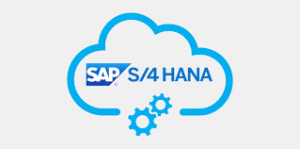
Pricing: Starts from RM10,000/month depending on modules and user licenses.
Pros: Real-time analytics, seamless integration, and strong scalability.
Cons: High implementation cost and complexity for SMEs.
Best For Which Industry: Ideal for large enterprises in manufacturing, oil & gas, and utilities.
SAP S/4HANA Cloud brings enterprise-level ERP capabilities to small businesses through its comprehensive SaaS platform. You can manage all aspects of your business operations with this solution, which integrates finance, HR, CRM, and analytics functionalities. Its cloud-based nature means you’ll benefit from lower upfront costs and regular automatic updates.
The system shines with its real-time data processing capabilities, allowing you to make faster, more informed decisions. You can scale the solution as your business grows, making it suitable for companies with 25-150 users. The intuitive interface reduces the learning curve for your team while providing robust features.
SAP’s small business offering stands out with its industry-specific solutions that adapt to your unique operational needs. You’ll appreciate the built-in AI and machine learning capabilities that automate routine tasks and provide predictive insights. For implementation and support, Aspert Innovations delivers the best expertise to ensure your SAP S/4HANA deployment maximizes value for your small business.
14. ADS: Adynamics

Pricing: Custom pricing based on modules and user requirements.
Pros: Localized features, SST-compliant, strong local support.
Cons: Limited international scalability, UI may feel dated.
Best For Which Industry: SMEs in trading, manufacturing, and distribution sectors.
Agile Dynamics Solutions (ADS) stands as Malaysia’s leading Gold Microsoft Partner, offering powerful ERP solutions through Microsoft Dynamics 365 Business Central. This comprehensive platform integrates seamlessly with Microsoft 365, allowing you to manage your small business operations without constantly switching between applications. You can access and update your business data directly through familiar tools like Excel, Word, and Teams.
ADS leverages Microsoft’s cutting-edge AI and machine learning capabilities to give your small business a competitive edge. The system can predict inventory needs, optimize cash flow through payment term adjustments, and generate production plans based on sales forecasts. You’ll benefit from Microsoft’s robust cloud security infrastructure, backed by over $1 billion in security R&D and 3,500 cybersecurity experts actively protecting your business data.
The platform receives continuous updates twice yearly (April and October), ensuring you always have access to the latest features without disrupting your customizations. Power BI, Power Automate, and PowerApps are included to help you build custom dashboards, automate repetitive tasks, and develop business applications without extensive coding knowledge. Your team can focus on growth while the system handles the complexities of business management.
15. XoroERP

Pricing: Custom pricing based on modules and user count.
Pros: Highly customizable, cloud-based, with strong inventory and finance modules.
Cons: Limited local support, steep learning curve.
Best For Which Industry: Ideal for manufacturing, trading, and distribution businesses.
XoroERP is an all-in-one cloud-based solution designed to help small businesses streamline their operations. It offers comprehensive functionality including email integration, notifications, and an access manager that allows you to maintain control over your business processes. The cloud platform enables you to access your business data from anywhere, making it ideal for teams working remotely or across multiple locations.
From manufacturing to retail, healthcare to finance, XoroERP provides tailored approaches to managing your specific business processes. Its flexibility makes it suitable for both small startups and growing enterprises, adapting to your needs as your business expands. You’ll find the tools necessary to support your growth trajectory and drive success without needing to switch systems later.
XoroERP stands out by combining enterprise-level capabilities with user-friendly interfaces that don’t require extensive training. The system helps you manage critical business functions while eliminating the complexity often associated with traditional ERP solutions. Your small business can benefit from enterprise-grade tools without the enterprise-grade price tag or implementation headaches.
Conclusion: SAP Business One is The Definitive ERP Cloud Software for Small Businesses
There are indeed many ERP systems to choose from in 2025, albeit small businesses might be a little tight on budget, but doable. In modern times, you can’t get away without an ERP system’s help.
All things considered, SAP Business One is the perfect ERP system for small businesses to implement a new ERP system. It works well with other software/system, and once it is up and running, a lot of work processes are streamlined.
Also, if you are keen to know more about ERP systems and how they can be customised to automate your business, seek out our experts at Aspert Innovations here!


